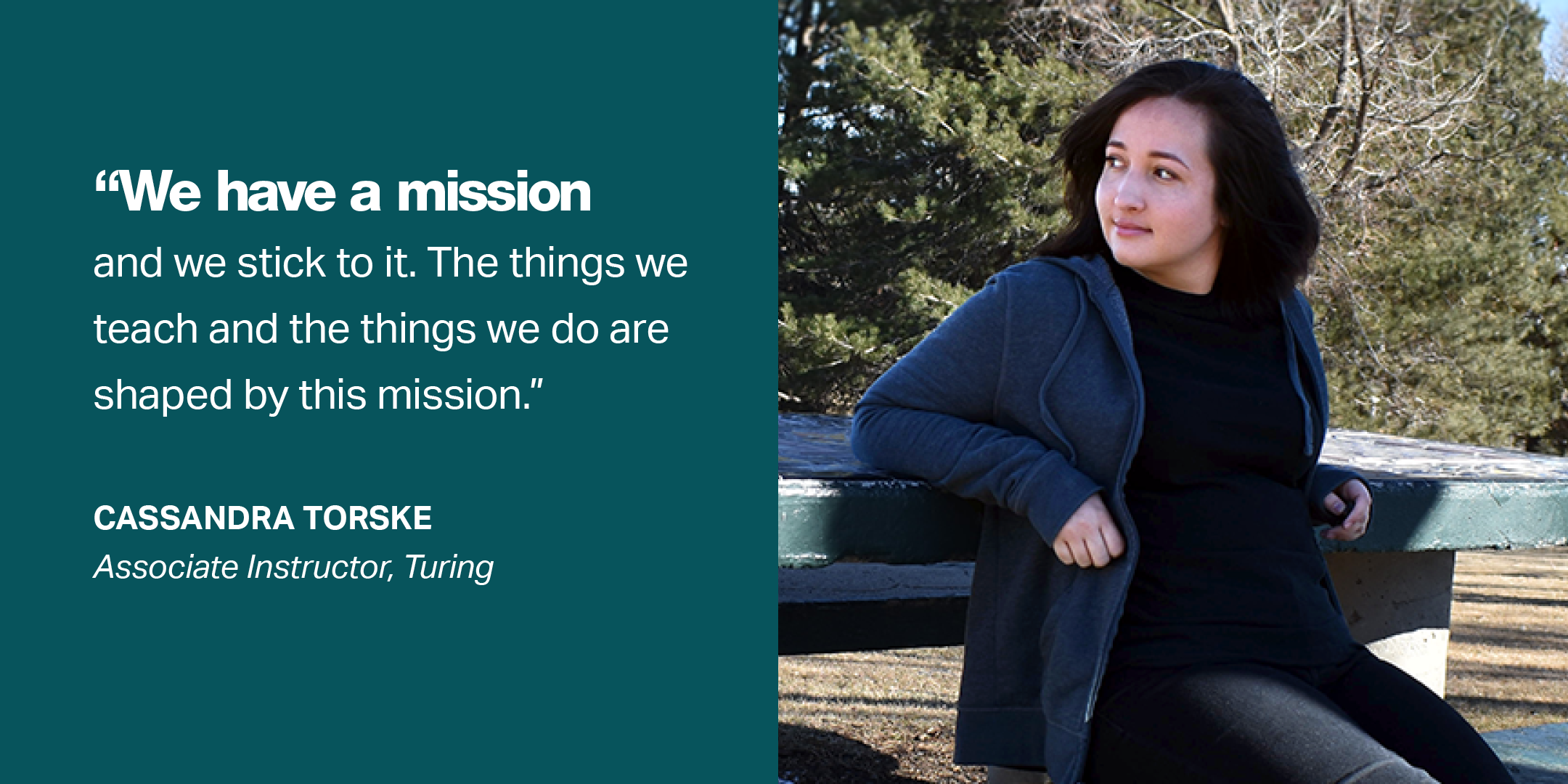From Developer to Teacher
Meet Associate Instructor Cassandra Torske.

Particularly passionate about her dog—a giant Saint Bernard named Panzer aka Piggy—Cassandra joined the Front End Turing team last June as an associate instructor. She isn’t tied to any one mod and has recently been 'looping,' which means she starts with a cohort and travels with them through the program. What she really likes about her job at Turing is that she isn’t just teaching students to code. “We teach empathy, inclusivity, and new perspectives. We teach what the tech industry is like for underrepresented groups, how technology affects the world, and our place in relation to technology. We teach people that they can make a positive impact on the industry and effect change.”
The Path
“I’d seen Ellen Mary talk on an ‘Inclusivity in the Workplace’ panel at the Develop Denver conference about five years ago and I was rather shocked and impressed by how Turing functioned. Turing's been on my radar ever since.”
Sidenote: Ellen Mary is Managing Director at Turing and if you come to this school, you might just be lucky enough to meet her. Now back to Cassandra: She comes from an education background. With a degree in music ed, she taught general music for a few years before leaving to learn code. Then she served a stint as a resident instructor (at the same code school she attended) prior to entering the developer space. In her most recent role as technical lead at Devetry, she oversaw a team of newer developers and helped guide their decision-making. Since that involves inherent mentoring, the transition from instructing on the job to instructing in the classroom was a seamless one.
And—since she’s spent significant time in both academic and professional environments iterating on things her students are only now grasping for the first time, she has a sixth sense of sorts. “I can predict problems before they happen and also know what to look for when things do go wrong.” It’s inevitable that they will. For Cassandra, it's about giving just enough guidance for students to find the solution on their own.
The Process
“We're teaching students how to learn, think critically, and be a force for good. We're teaching them to see themselves and the world in a new way. It's fulfilling to be part of that process.”
Cassandra also finds it fulfilling to see students gain confidence in themselves and live a life they might not have thought possible. “I really like helping people get into a career that pays well and has many opportunities.” She understands this all too well herself. Those early years teaching music to kids were a struggle financially, not to mention in a public school system she found demoralizing (truth).
This much, too, she knows is true: everything can be learned. “The word 'talent' is thrown around a lot, but I’ve seen people start from nothing and become experts in their field; inherent talent had nothing to do with it. They simply worked for it.” She continues, “I also believe that the best way to learn is to make mistakes. People can watch tutorials and read articles all day long but they'll never truly be able to master a skill unless they are practicing it.” At Turing, students learn by doing. They leave knowing they can learn anything with a little grit and determination.
The Perks
“Every seven weeks is an intermission. So at the start of every inning, I'm fresh and ready to start teaching.”
On top of that, improved mental health and wellbeing (check). Turing is conscientious of workloads and work/life balance. “I don't get burned out because I have time to decompress and cool down. As a team, we work to make sure that no one mod is struggling and we support one another when we need time off or help. This also contributes to not experiencing burnout.”
Cassandra treats teaching as a skill that must be honed and practiced, which makes her effective at guiding students to goals. You’ll often find her reading up on teaching techniques or working on talks that she gives at conferences and meetups. Outside of teaching, she can be spotted playing the clarinet in a woodwind quintet, studying visual art, hanging out with her dog, hanging out with her partner, sometimes running, reading science fiction and fantasy, sometimes working on side projects, playing video games, and consuming media. Oh, and eating cereal anytime of day but breakfast.
The People
“Everyone here is a good person. They are invested in the mission and I trust them.”
When asked if it’s hard to stay connected to colleagues, Cassandra shakes her head no. “Even though we all work remotely, I don't feel alone. We have a good amount of meetings and full company retros that aren't just about providing information. They are also times for collaboration, bonding, and learning.” And at Turing, we share the belief that students are people. Our very best people. She recollects, “In college, many of us experienced professors who disregarded our humanity and demanded results. That doesn't foster growth and learning, that fosters fear.” And it’s the opposite of what we do here.
Cassandra continues, “I always try to see things from my students' perspective first. I know that the world is buried in hidden biases and built-in racism. I constantly challenge myself to present information and run activities in an inclusive and positive way.” Especially having herself felt patronized on multiple occasions as a woman in tech, she is committed to shaping students who can simultaneously work to better themselves and the industry.
Interested in being part of a place with amazing perks and people? To apply for a position at Turing, click here.
Recently named #18 on 100 Best Places to Work, #4 on 50 Best Small Places to Work, and #13 on 50 Companies with the Best Benefits by Built In Colorado
Interested in attending a school where you can try new things, make mistakes, rinse and repeat?
Contact Admissions Counselor Chelsea Stallings.
Schedule a call with her directly here or send her an email at chelsea@turing.edu

